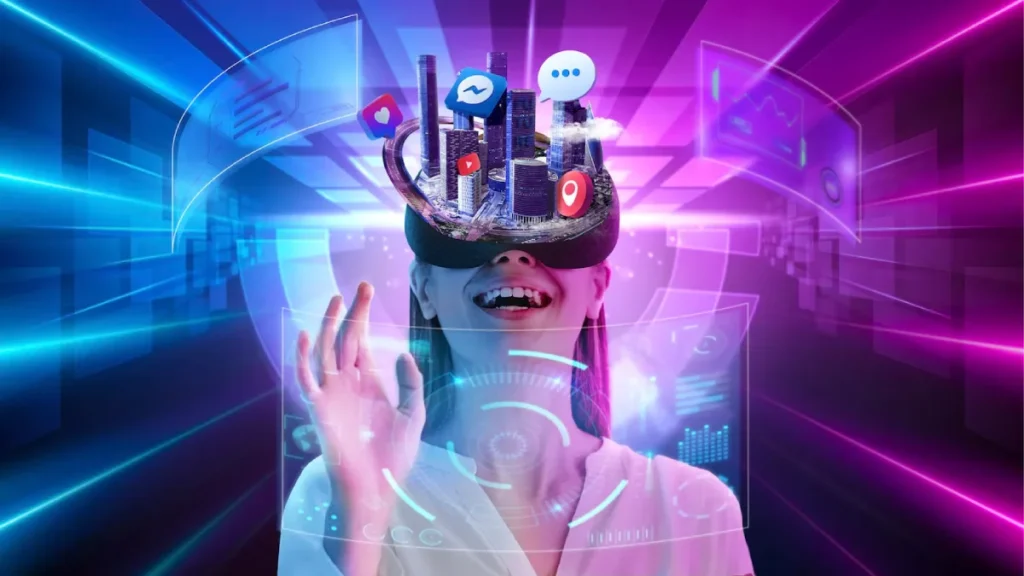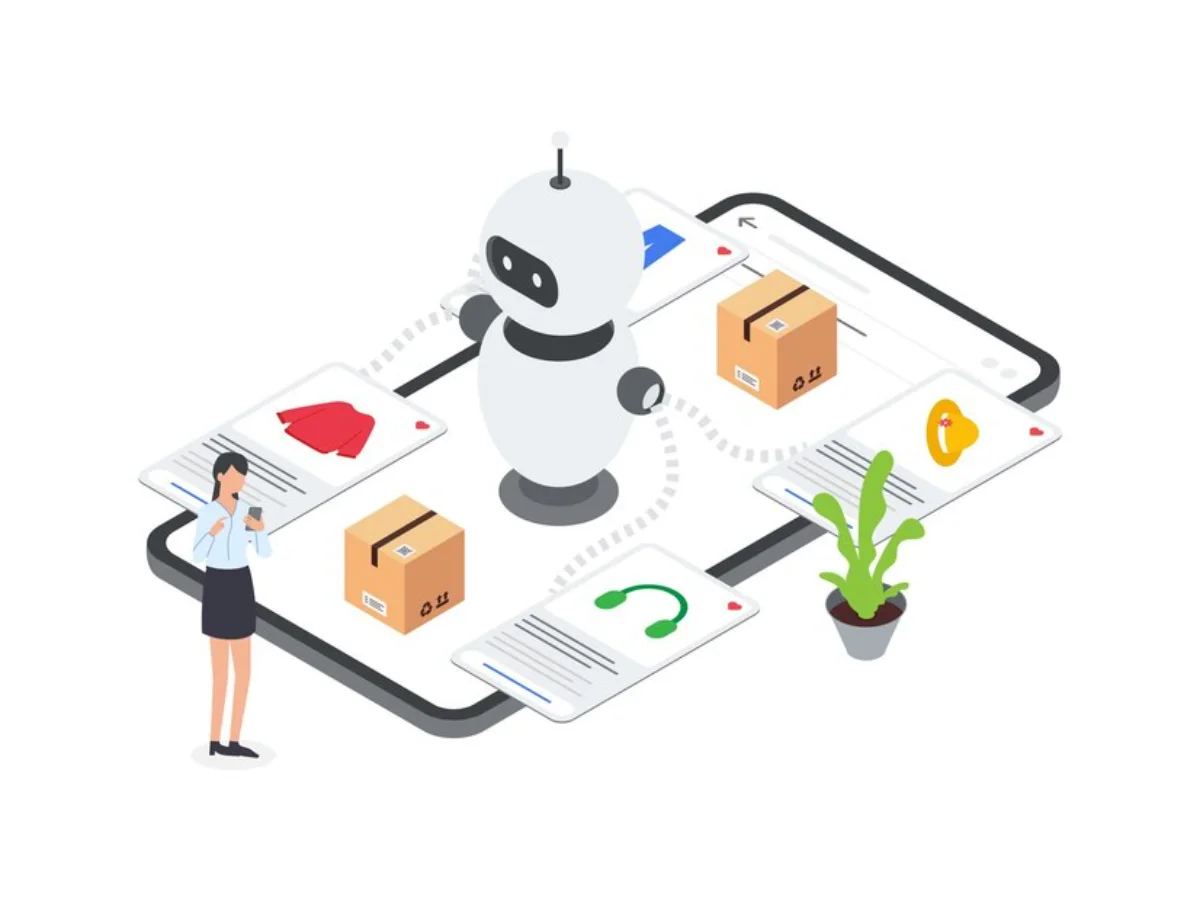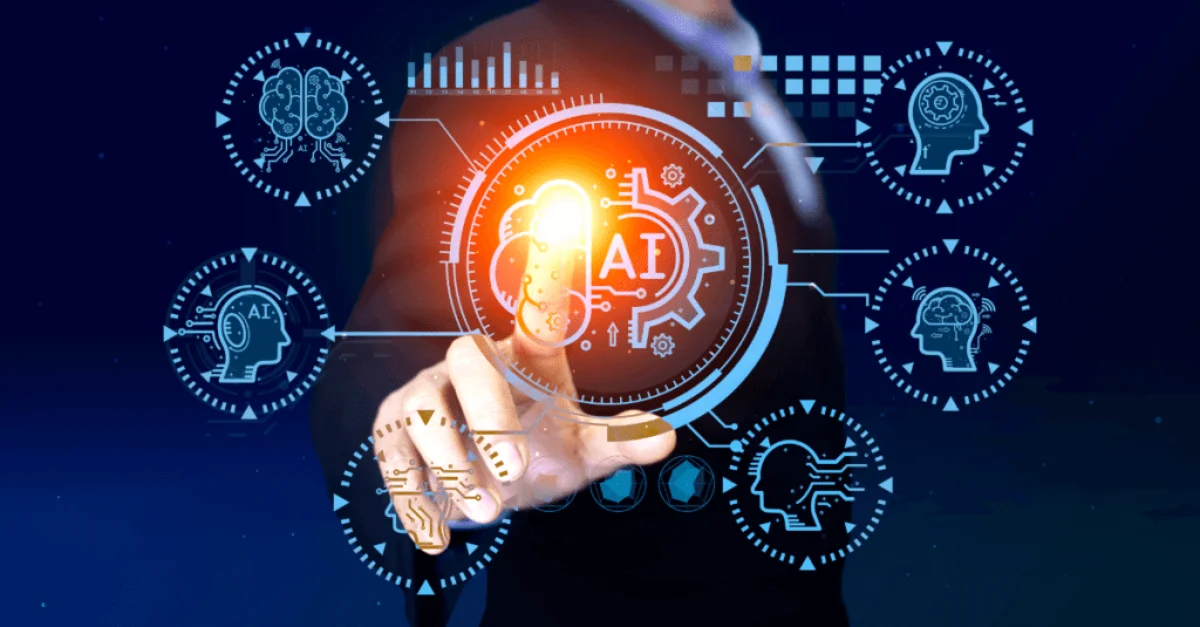The Technology Blog

How AI is Personalising Digital Marketing
Digital marketing has changed a lot recently. AI in marketing leads this shift. Brands use AI to understand consumer behaviour, automate tasks, and create personalised marketing. Businesses are using AI for many things. They use chatbots, predictive analytics, and AI-driven content. With these tools, they can create personalised marketing campaigns.
AI is not just about automation—it is about making marketing smarter. AI helps companies optimise ad spending. It improves customer segmentation and creates content that connects with audiences. With the rise of machine learning and deep learning, AI systems are getting better at understanding human behaviour, emotions, and purchasing patterns. In this article, we’ll look at how AI is changing digital marketing. We’ll find out how this affects brands looking to increase engagement and enhance customer experience.

The Role of AI in Digital Marketing
AI is changing how businesses connect with their audience. It processes large amounts of data and finds patterns quickly. Humans would take much longer to spot these trends. AI marketing tools help businesses automate tasks, optimise ad targeting, and boost user engagement. They do this using real-time data insights.
Key Applications of AI in Marketing
- Chatbots & Virtual Assistants – AI-powered chatbots handle customer inquiries, improve response times, and enhance user experience.
- Predictive Analytics – AI analyses past behaviours to predict future customer actions and optimise marketing strategies.
- AI-driven Content Creation – Automated tools generate blog posts, product descriptions, and email copy based on audience preferences.
- Conversational AI – Virtual assistants like Google Assistant and Alexa are enhancing voice-based marketing and interactions.
- Sentiment Analysis – AI analyses customer emotions and feedback to refine marketing strategies.

AI-Driven Personalisation: Creating Unique Customer Experiences
Personalisation is vital in today’s marketing. AI helps businesses customise content, recommendations, and offers. They do this by using each customer’s preferences and behaviours.
How AI Enhances Personalisation
- Dynamic Content – Our AI tunes in to your browsing habits. It creates custom website content and product suggestions just for you.
- Email Marketing Optimization – With a touch of magic, AI creates email campaigns that engage you. It personalises subject lines, messaging, and timing for the best results.
- AI-Powered Product Recommendations – Retailers use AI to show you what you really want. It suggests items based on what you’ve bought and how you’ve browsed.
- Behavioural Targeting – AI tracks your clicks and scrolls. It creates ads that feel just right for you.
- AI-Powered Loyalty Programs – Brands use AI to design rewards just for you. They offer personalised rewards and special deals that make you feel valued.

Business Automation with AI: Streamlining Marketing Tasks
AI automation tools cut down manual work and boost efficiency. They handle repetitive marketing tasks automatically.
AI-Powered Automation in Marketing
- Automated Social Media Posting – Let AI handle scheduling. It posts at the best times for engagement.
- Ad Targeting and Bidding – See how AI sharpens PPC bids with real-time precision.
- Customer Segmentation – AI organises your audience like a skilled conductor. It considers demographics, behaviors, and desires.
- AI-Powered CRM Systems – Boost your customer connections. AI predicts needs and tracks interactions smoothly.
- Programmatic Advertising – Let your ad budget grow while AI manages media buys smoothly.
AI and Data Analytics: Unlocking Customer Insights
One of the biggest advantages of AI in marketing is its ability to analyse massive datasets quickly and accurately.
How AI Uses Data for Smarter Marketing
- Predictive Customer Behavior Modeling – AI unveils trends and buying patterns in advance.
- Real-Time Data Processing – AI helps marketers make quick decisions using live data.
- Churn Prediction – AI spots customers in peril and crafts savvy retention strategies.
- A/B Testing Automation – AI orchestrates simultaneous tests to unveil the marketing stars.
- Voice and Image Recognition – AI helps brands understand customer interactions through voice and images.
AI-Powered Customer Service: Enhancing Brand Experience
AI improves customer service by cutting wait times and offering personalised help.
AI in Customer Support
- AI Chatbots – Handle thousands of customer queries simultaneously with personalised responses.
- Voice Assistants – Help customers place orders, schedule appointments, or get product recommendations.
- AI-Powered Help Desks – Automate ticketing and troubleshooting to resolve issues faster.
- Predictive Customer Support – AI spots customer problems early and offers solutions before they arise.
The Future of AI in Digital Marketing
As AI technology continues to evolve, its role in digital marketing will only expand. Businesses that use AI marketing will outpace their rivals. They can create personalized, data-driven campaigns. These campaigns engage customers more deeply.
What’s Next for AI in Marketing?
- Search Optimization – AI will fine-tune voice search for pinpoint accuracy and relevance.
- AI-Powered Visual Search – Brands will harness AI, enabling image searches over text.
- Hyper-Personalization – AI will refine data to craft uniquely tailored customer experiences.
- AI in Influencer Marketing – AI will pinpoint the perfect influencers and enhance campaigns.
- Emotion AI – AI will read human emotions, aligning marketing messages with feelings.
Ethical Considerations of AI in Marketing
AI in marketing has benefits, but it also brings up ethical issues. These include data privacy, transparency, and fairness.
Challenges and Ethical Issues
- Data Privacy Dilemmas – Like a detective in a data maze, AI sifts through vast user information. This raises eyebrows about consent and security, making vigilance essential
- Bias in the Binary – AI algorithms can mirror the biases lurking in their datasets. This leads to marketing decisions that might seem unfair, carving uneven pathways in promotions
- The Human Element – Dependence on AI in marketing can strip away warmth. When interactions become robotic, they can feel cold, leaving consumers craving a personal touch
- Trust in Technology – Brands must navigate the fine line of AI-driven personalisation. If not careful, it can come off as intrusive, jeopardising consumer trust and loyalty.
Leveraging AI for Smarter Marketing
AI is no longer a futuristic concept—it’s transforming digital marketing today. AI helps brands automate tasks and create personalised content. This makes marketing campaigns smarter and more engaging. Businesses using AI in their strategies will achieve higher conversion rates. They will boost customer engagement and gain an edge in the digital world.
As AI moves forward, marketers need to blend automation with human creativity. This balance helps create campaigns that are efficient and emotionally impactful. Are you ready to embrace the future of AI-powered marketing? Now is the time to explore AI solutions and take your digital marketing strategy to the next level.









